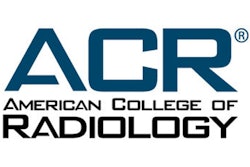Sunday, November 26 | 12:05 p.m.-12:15 p.m. | SSA04-09 | Room S504AB
Fractional flow reserve CT (FFR-CT) matches the accuracy of invasive coronary angiography in identifying coronary artery disease (CAD) and may help determine its management, according to a study to be presented on Sunday.Prior research has shown the effectiveness of FFR-CT as an alternative to invasive angiography. But is it capable of taking the next step of facilitating therapeutic decision-making?
Researchers from the Medical University of South Carolina believed so. They used a machine-learning algorithm to retrospectively compute the FFR-CT values of 74 patients with at least one coronary stenosis who previously underwent invasive coronary angiography.
FFR-CT had an excellent ability to identify patients in need of revascularization and also direct physicians toward the appropriate revascularization procedure, Dr. Philipp von Knebel Doeberitz told AuntMinnie.com.
"We believe that FFR-CT in clinical workup for patients with known or suspected coronary artery disease will be beneficial," he said. "As a noninvasive 'one-stop shop,' it has the potential and the ability to change diagnostic workflows and could directly inform about therapeutic decision-making in patients with suspected or known coronary artery disease."




















